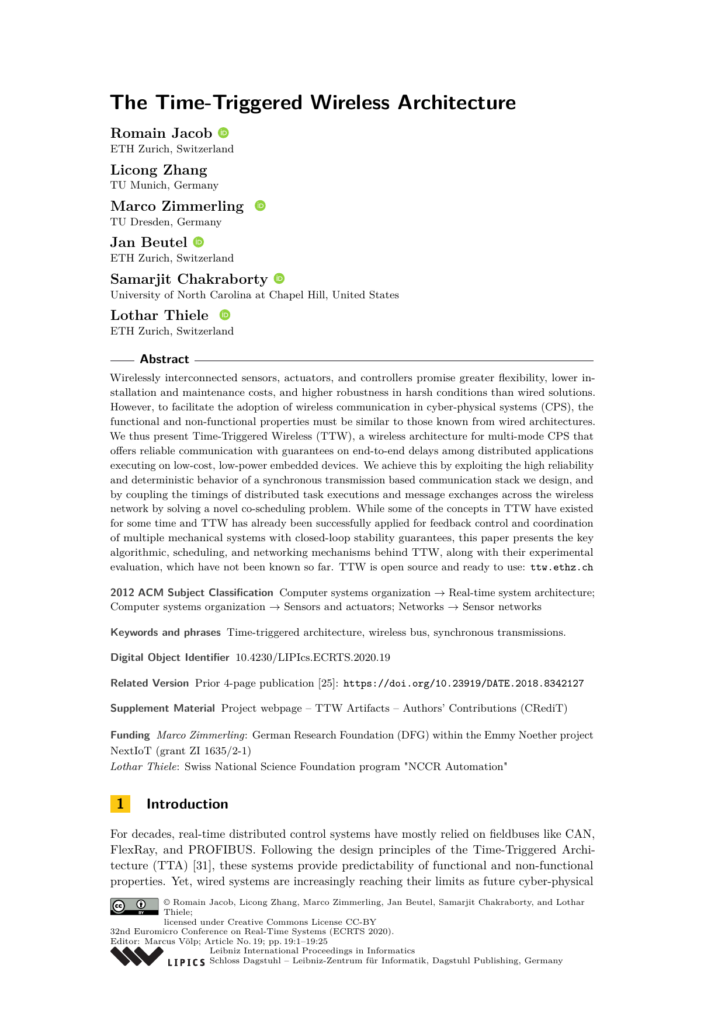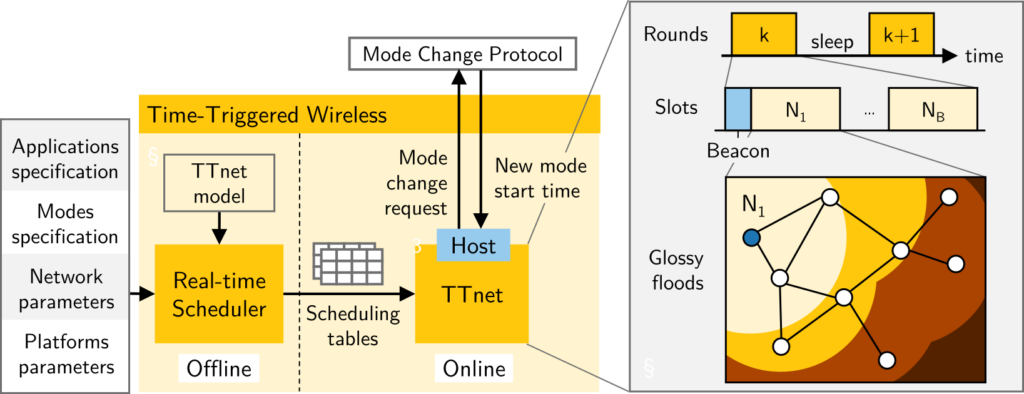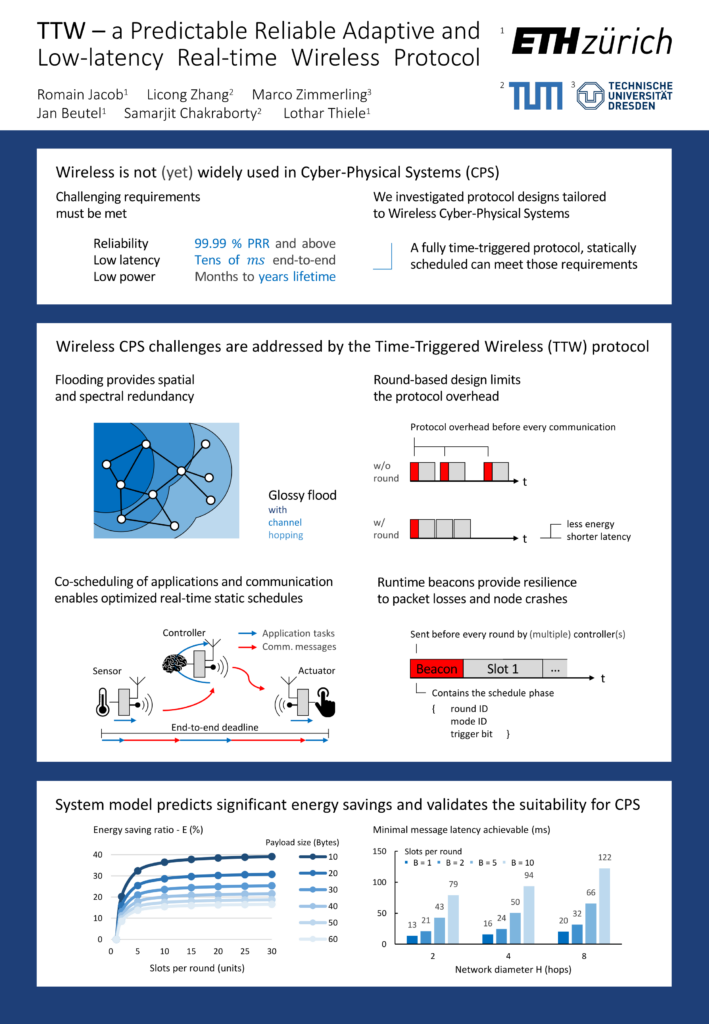Publication
The Time-Triggered Wireless Architecture
Jacob, Romain and Zhang, Licong and Zimmerling, Marco and Beutel, Jan and Chakraborty, Samarjit and Thiele, Lothar
ECRTS, 2020



Videos
One-minute pitch video
Full presentation (15min)
Software
Github
https://github.com/romain-jacob/TTW-Artifacts
Zenodo (archive)
Romain Jacob, & Licong Zhang. (2020). TTW Artifacts – Artifact Evaluation passed (1.1). Zenodo.


